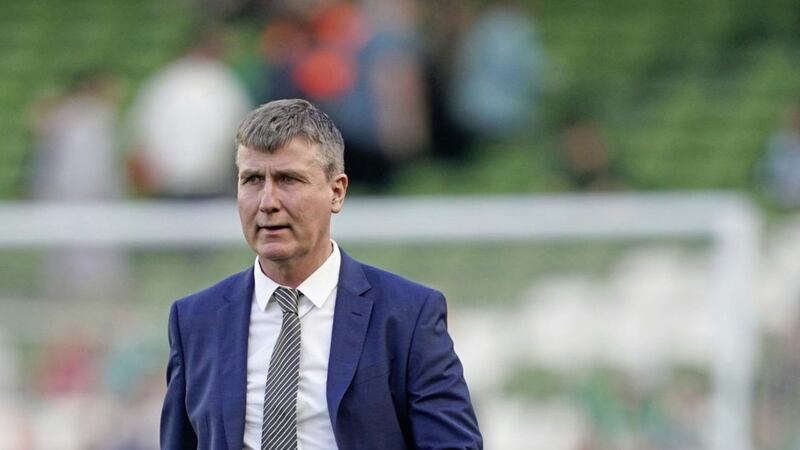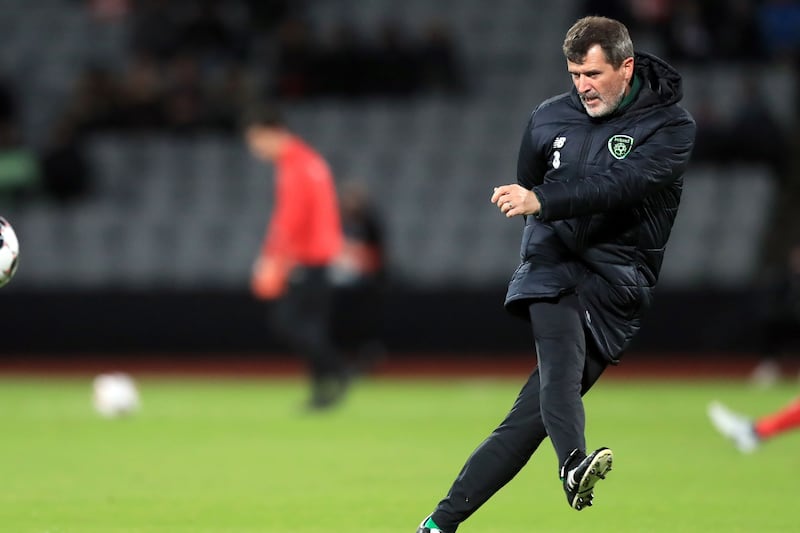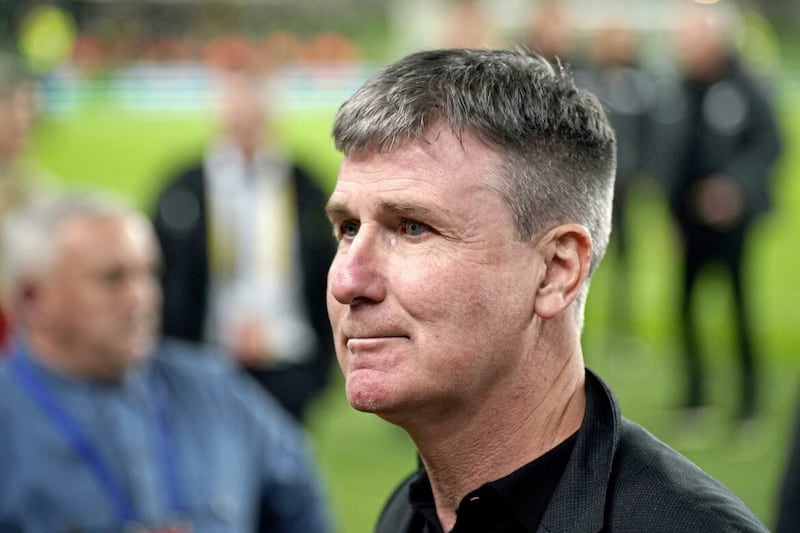HAVING the privilege of following the fortunes of the Republic of Ireland team for over 20 years, you would hear the familiar refrain echoing in every stadium at some point: ‘You’ll never beat the Irish’.
If that defiant chant had another line added to it, it could easily be: ‘But we’ll probably not beat you either.’
‘You’ll never beat the Irish’ celebrated the backs-to-the-wall approach successive Irish teams adopted.
In ways, it kept expectations in check and the collective self-esteem of the squad also remained modest. For several Republic of Ireland managers, there always seemed a bit of self-preservation at play.
Keep expectations low, talk about the players’ big hearts, while at the same time stressing their modest talent. Maybe it was all true.
Prior to Tuesday night’s international friendly with Lithuania, assistant manager Keith Andrews made a rare press conference appearance where he referenced how Giovanni Trapattoni didn’t quite believe in the players he had his disposal during his five-year reign.
“[We had] a manager who probably didn't have enough belief in what we could do,” Andrews noted.
An undoubted legend of the game, Trapattoni would regale the Irish media about all the great players coached while winning Serie A titles in his homeland.
Lothar Matthaus, Andreas Brehme, Michel Platini and so many of his press conferences went. There was no better name dropper than ‘Trap’.
The Italian coach’s approach got the Republic to Euro 2012 which turned out to be the most demoralising experience at a major tournament. Granted, they faced a powerful and slick Croatia in their opener and a Spanish side who were arguably at their absolute peak – but the backs-to-the-wall approach became the team’s self-fulfilling prophecy. A “slow death” you might call it.
Spool forward to last Saturday evening, a half hour after Ireland drew 2-2 with Belgium and reporters got another snapshot of what Stephen Kenny is trying to do.
“We don't want to be in a low block playing against them,” Kenny said. “You could play a mid-block against Belgium and not get out and it's a slow death. We're not having that; we don't want that. We want to try and affect the game.”
In stepping up to the senior international job, Kenny raised expectations. It might seem strange to pose the question: but is that not a manager’s job? Aim high and see where you land?
In doing so, he went out on a limb.
If Trapattoni, Martin O’Neill and Mick McCarthy hinted enough times about the lack of quality at their disposal it almost became a ready-made excuse for poor performances and results.
After a couple of disappointing results at the start of his own tenure, a reporter asked Kenny was he wise in raising expectations to such an extent, he replied: “Sometimes I answer questions too honestly but it’s not a deliberate strategy.
“Maybe it's not wise. Maybe other people are wiser than me. That’s quite probable. But I believe that we have a lot of potential coming through the ranks.”
Of course, who knows how Stephen Kenny’s reign as Ireland manager will unfold. He might never qualify for a major tournament while McCarthy, Trapattoni and O’Neill did. That might well be his epitaph on the international stage.
Maybe these more experienced football men know something that Kenny doesn’t; that the Dubliner’s lofty idealism of finding another way to win football matches will slowly disintegrate and he will come to understand – and appreciate – the limited DNA of Irish footballers.
It’s doubtful though given Kenny’s convictions. Some ex-international players and coaches that have gone before him want their austere, backs-to-the-wall approach to be vindicated.
They don’t want this ‘League of Ireland’ upstart ripping up their old-school scripts. What would it say about them?
What Kenny will always have to tolerate in the role as senior international manager is football snobbery.
There has been enough expressed begrudgery towards the man that suggests some pundits and ex-internationals want him to fail or have at least become agnostic towards the national team.
That’s not to say Stephen Kenny is beyond criticism. Even allowing for how COVID caused such havoc in his first year, the former Dundalk manager endured plenty in the role, particularly after their home defeat to Luxembourg that effectively ended their hopes of World Cup qualification.
But the fact Kenny was derided for ‘over-celebrating’ Troy Parrott’s last-gasp winner against Lithuania on Wednesday night gives voice to the mean-spiritedness felt towards him.
Roy Keane was one of the first out of the blocks.
“Honestly, that’s over the top. For managers, staff and players. To react that way to a friendly win. Come on…Get over it.”
In 2016, former Armagh footballer and All-Ireland winner Enda McNulty remarked that in order for players to remain focused during games, they should not celebrate goals and resist interacting with the crowd.
As one of Kenny’s press huddles was about to break up around that time, he addressed McNulty’s observations. And in an Irish News interview he expanded on the need to celebrate big moments in games.
“I can see from an area of concentration after you score; I can see the validation in it but if you take away the joy there is nothing left,” Kenny said.
“What’s left? Do you know what I mean? To score a great goal in a great stadium, you have to celebrate – that’s why people go, they want to share in the joy with the players and to have that connection.
“They want to celebrate; they want to enjoy that. I don’t mean a pre-rehearsed celebration; I mean just natural joy.”
If the criticism has degenerated to this nit-picking level, it is probably tacit acceptance by the Dubliner's staunchest critics that he might just be doing a good job.







